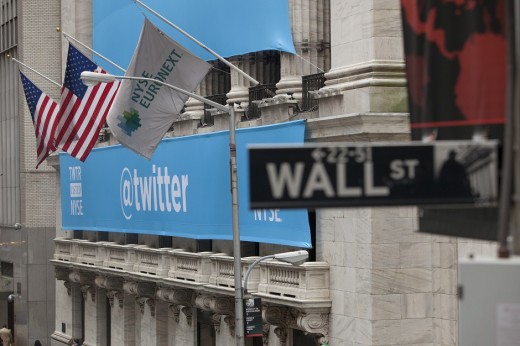What Does Market Capitalization Mean? Stockhouse.com Calculation Error

What is a company's market capitalization?
The market capitalization of a company is the sum of the value of all shares outstanding, or the total amount another company or individual would need to pay if they wanted to own it outright. Because of the effects larger purchasers of stock can have on its price, the amount an acquiring company might need to pay to actually buy all the outstanding stock is often higher; the "near-20 percent premium" Sycamore Partners, a private equity firm, is paying for shares of Staples, Inc. (Nasdaq: SPLS), as reported by CNBC, illustrates this phenomenon well.
Instead of going into the open market and causing a potentially unsustainable run-up, with both Sycamore and speculators competing for all available shares, Sycamore has opted, as almost all acquiring firms do, to simply make an offer well above the current market price. A 20-percent premium on share price equates to a 20-percent premium on market capitalization, too.
To calculate a company's market capitalization:
market cap = number of shares outstanding x current share price
Continuing with the Staples example, with data from Yahoo Finance:
Staples' market cap = number of SPLS shares outstanding x current SPLS share price
Staples' market cap = 653.17 million x $10.07
Staples' market cap = $6.58 billion
Interesting to note is the effect news of the takeover had on Staples' market capitalization. Last Monday, June 26, Staples' market cap was $6.05 billion. According to CNBC, in its totality, the Sycamore deal values Staples at $6.9 billion. This means that, since the news broke, the market capitalization of Staples has increased by about 8.8 percent. In also implies that, if the deal goes through as planned, investors who buy SPLS stock today have the potential to earn about another 4.8 percent when the private equity firm buys their shares out.
Proper consolidation adjustment

Apparent missing consolidation adjustment

What is market capitalization used for?
In addition to giving acquiring companies an idea of how much they might need to pay to buy a publicly traded company out, smaller investors use market capitalization to gain an overall picture of the valuation of a company, with comparisons to earnings and revenues often being made.
For example, according to Yahoo Finance, the consensus Wall Street analyst estimate for 2017 Facebook, Inc. (Nasdaq: FB) revenues is $38.52 billion. Facebook has a market capitalization of $437.57 billion. Given this, we can see that the market gives a total value to Facebook of about 11.4 times its revenues. Comparatively, AT&T Inc. (NYSE: T), a much more mature company, is expected to report revenues of $161.26 billion in 2017, and it has a market cap of $231.96 billion, putting the total value the market gives the company at about 1.4 times its revenues, or about 87 percent less that it does Facebook.
This difference lies in the growth rates and profitability of each company. Facebook's 2017 revenues are expected to grow 39.4 percent from 2016 levels, while AT&T's revenues are expected to fall 1.5 percent. Modern stock markets, and by extension acquiring companies, are willing to pay significant premiums to a company's revenues, if they are growing quickly enough.
Facebook is also extremely profitable, last reporting an operating margin of 45.87 percent and a profit margin of 38.11 percent. AT&T's most recently reported operating margin was 15.93 percent and profit margin was 7.77 percent. Further, Facebook is debt free, while AT&T last reported $136.9 billion in debt, which will eat into future profits. The balance sheet and debt position of each firm affects both profitability and growth.
In early June, Canadian stock website Stockhouse.com announced that it had been made aware of problems with its reported market capitalization with some stocks. The reported market cap for bigger NYSE- and Nasdaq-listed stocks, such as SPLS, appears to be correct with Stockhouse. The problem seems to be with smaller-market-capitalization Canadian stocks. RT Minerals Corp. (TSXV: RTM) is a good example.
Yahoo Finance reports that RT Minerals has a market capitalization of $2.02 million, while Stockhouse reports that it is $1.46 million. Other seemingly significant errors have been observed with Stockhouse data for RT Minerals; data for a firm on which RT Minerals CEO Paul Antoniazzi serves a board member, Opawica Explorations Inc. (TSXV: OPW); and close to 100 other companies listed in a January 2017 report presented to Canada's Minister of Public Safety Ralph Goodale.
Questions have swirled around the passing of Paul Antoniazzi's late wife, Nadine Antoniazzi, the circumstances surrounding her death, and its possible connection to shares issued by companies Mr. Antoniazzi has been connected to, including Opawica and RT Minerals.
The significant errors with RT Minerals data presented by Stockhouse include a seeming missing December 2013 consolidation adjustment, similar to what appears to be a missing consolidation adjustment in the shares of Opawica Explorations, as previously featured with HubPages. It has been noted that, in addition to misleading investors, charts with missing consolidation adjustments, particularly from an official-looking provider like Stockhouse, have the potential to be used by those seeking to actively deceive investors, who may potentially range from strangers to friends, co-workers, and family members, among others.
Whether or not the apparent consolidation-adjustment errors and market-capitalization errors with Stockhouse are related is unknown.
© 2017 Stephen Sinclair

![Obama's General Motors [GM] Tarp Bailout - The Untold Details Obama's General Motors [GM] Tarp Bailout - The Untold Details](https://images.saymedia-content.com/.image/t_share/MTc0MTU0NDA1OTcxNzY1MTE2/obama-general-motors-gm-tarp-bailout-untold-details.jpg)






